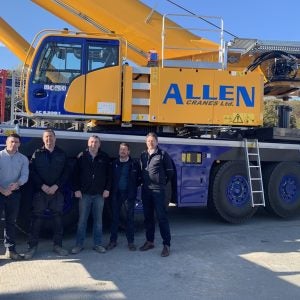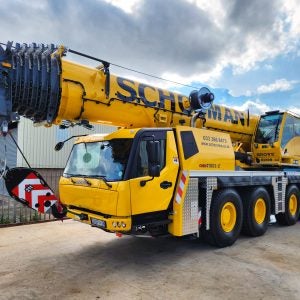OSHA announced the plan for a delay on May 22. As well as delaying implementation of the certification requirement to November 10 2017, the agency said it is considering a separate rulemaking to address concerns over the certification requirment.
Rob Weiss, vice president of New York hirer Cranes Inc and a member of the Cranes and Derricks Advisory Committee (C-DAC) that helped develop the standard through a negotiated rulemaking, condemned the delay: "Delay in the implementation of an operator certification requirement is troubling and does nothing to advance safety. Way back in 2003, C-DAC determined that certification was necessary in order to raise the level of operator competency in America. The lengthy bureaucratic process of approval assured that the new standard was delayed for six years before being published as a rule. Believe it or not, with this new delay, the requirement for operator certification will be effective 13 years after C-DAC first published its draft. That is way too long to wait for something this important.
"What’s more disturbing is that the three year extension being proposed by OSHA could have been avoided if they had just followed C-DAC’s intent. The crux of the issue is that the standard has a requirement that operators be certified based on the type and capacity of the crane they will operate. We never believed that capacity had any relevance in judging the skills of an operator, despite what was written.
"When we drafted the rule, the National Commission for the Certification of Crane Operators (NCCCO) was the only accredited and OSHA-recognized certification body for crane operators in the US, and, as such, we carefully studied their testing scheme. NCCCO certified operators on the basis of crane type, with the sole exception of telescopic boom cranes below 17.5 tons. Crane capacity was meaningless; it simply represented the break point between fixed cab and swing cab machines. However, to ensure that C-DAC was in sync with NCCCO’s tests, we included the word capacity.
"Clear evidence of C-DAC’s intent that capacity was irrelevant lies in rule itself. Certification by an accredited testing organization is the only one of four options for operator qualification that has a capacity requirement. The other three only call for testing by type.
"If OSHA had issued an interpretation that discounted capacity as a certification criteria, then the original certification date of November 2014 could have been met. Letting this issue delay the certification process was not necessary. Frankly, the crane industry does not support certification by capacity, nor does it see any safety benefit in testing by capacity. I can only hope that OSHA uses this delay to correct an inadvertent error in its rule."
Graham Brent, executive director of the NCCCO, took a more conciliatory approach to the decision, saying, "The most important part I believe is not the fact that OSHA will propose to extend the compliance date, but why this additional time would be needed. A separate rulemaking could take a while, it could run right into the current deadline.
"Although this time extension will be viewed by many as a further "delay" and will not be popular, I believe, in the industry, the announcement taken as a whole is really a vindication of the industry’s efforts over the past year to get OSHA to understand that there are some serious flaws in the way it
was planning to interpret key provisions of para. 1427, i.e. the "certification by capacity" and the "certification = qualification" issues. So, to that extent, we would view this news positively."






